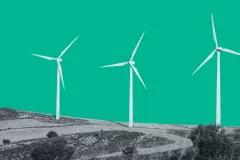At COP28, negotiators must deliver a rapid response plan to the Global Stocktake that decarbonizes economies at a pace and depth scale not seen before, offers much more focus on building resilience to climate impacts and significantly increases finance flowing toward climate solutions in developing countries. But once the final gavel drops, how can leaders translate signals from the Global Stocktake into tangible progress on the ground?
In this side event, government representatives and others explored how countries, cities and others can use a strong Global Stocktake outcome at COP28 as a jumping off point for advancing bold climate actions and policies at home, including laying the groundwork for submitting much stronger nationally determined contributions (NDCs) in 2025. Speakers also touched on resources that will likely be available at the regional and international level to support ambitious climate action.
Moderator:
Niklas Höhne, NewClimate Institute
Speakers:
- Ana Toni, Ministry of Environment and Climate Change, Brazil
- Manuel Pulgar Vidal, WWF
- Sophie Boehm, World Resources Institute
- Angelo Kairos T. dela Cruz, Institute for Climate and Sustainable Cities
Co-organizers:
- WRI, ClimateWorks Foundation, NewClimate Institute, WWF, CAN Europe






